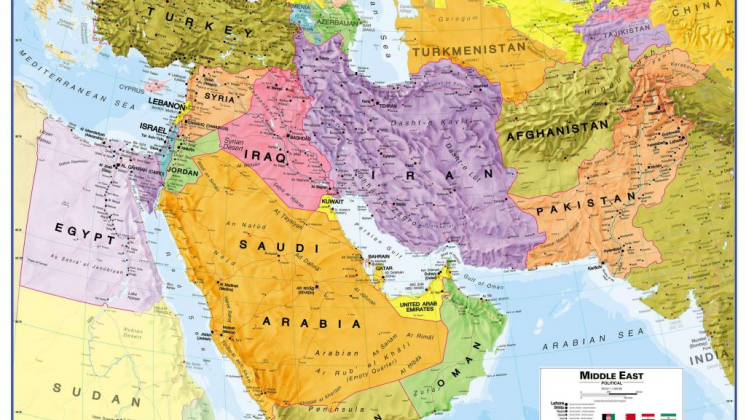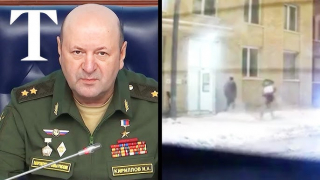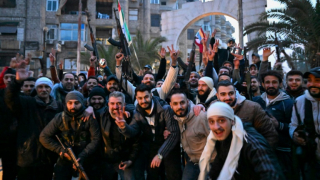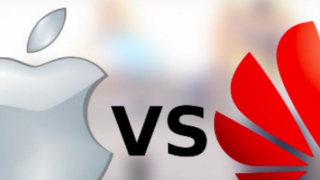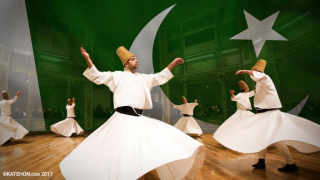Walking on Thin Ice
30.10.2019
Pakistan’s Efforts for Peace & De-escalation in the Middle East
On September 14, 2019, two major oil processing facilities of the Kingdom of Saudi Arabia (KSA) were hit by multiple drones and missiles. The oil processing facilities that were targeted are located in Abqaiq and Khurais (east of the capital Riyadh). The oil facilities were state-owned Saudi Aramco oil facilities and were among the world’s largest and most important energy centres in the world. The attacks resulted in the disruption of half of the kingdom’s oil producing capacity which makes up 5% of the daily oil supply internationally.
Responsibility for the attacks was claimed by the Yemini Houthi rebels who are allegedly backed by Iran. However, the United States (US) was quick to blame Iran for the attacks bydiscounting the claim made by the Houthi rebels. The US Secretary of State Mike Pompeo stated the attacks were “an act of war” by Iran while the US President Trump threatened that the US had many options in response which are under consideration.
Furthermore, KSA’s defence ministry held a press briefing on September 18, 2019, laying out the debris from the drone and missile attacks four days earlier. KSA’s defence minister said that the evidence showed that the attacks was sponsored by Iran and were launched from the north.
Despite all the allegations from KSA and the US, Iran completely denied the charges being levelled against it and warned against any action which will be met with a befitting and immediate response by Iran. Critically analysing the briefing by KSA’s defence ministry it seems like the kingdom is still in the dark regarding complete details of the attack. The briefing was also unable to answer the pertinent question of the weapons that targeted the oil facilities fired from the Iranian soil? The Saudis are still unsure of the location and investigations are still continuing.
Ever since the attacks on KSA’s oil fields have taken place, a blame game has ensued in the Middle East, and the region immediately plunged into chaos. The entire western community, including some of the regional countries like the United Arab Emirates (UAE) and Israel started blaming Iran for the attacks while simultaneously holding it responsible for the turmoil in the region.
But there is more to this situation that what meets the eye. Who benefits the most from this chaos and turmoil in the region or better yet from worsening relations between KSA and Iran? The answer is definitely not KSA and Iran or any regional country for that matter except for Israel. A critical analysis of the situation, one can deduce that it is the US that benefits the most from KSA’s and Iran’s turbulent relationship.
As per the US Security Strategy, one of the threats to US national security interests is emanating from rouge countries in the world. One of those ‘rouge’ countries, according to the US is Iran and the former is hell-bent on subjugating the latter by any means necessary. Initially the US pulled out of the JCPOA nuclear deal with Iran and levied massive economic sanctions against it in a bid to weaken the country economically. Later, the US attempted to stop other countries from dealing with Iran by utilizing CAATSA (Countering America’s Adversaries through Sanctions) act, followed by placing the Iranian Revolutionary Guard Corps (IRGC) under its foreign terrorist list.
Undeterred by such actions, the US started to put pressure on Iran via other means such as attempting to restrict Iran’s manoeuvrability in the Gulf waters and increasing tensions in relations with its neighbours.
Secondly, according to March 2019 Fact Sheet published by Stockholm International Peace Research Institute (SIPRI), KSA was the world’s largest importer from 2014-2018, and US accounted for 88% of the total arms sale to the kingdom.
In May 2017, the US signed an arms deal worth of US$460 billion with KSA and later in June 2019, a deal worth of US$8 billion with KSA and UAE. Almost all the arms & weapons bought by KSA from the US are being used against by the kingdom in its war against Yemen. The US wants to prolong this war in Yemen as it is ensuring a constant sale of its arms and weapons which is supporting its economy which is majorly based on war-industrial complex.
Keepingthese facts in mind, it seems like the attacks on ARAMCO oil facilities were false-flag, executed in order to provide further impetus to the US to take more serious actions to choke Iran and find excuses to prolong its military presence in the region, contrary to the statements of President Trump who wants to ‘end protracted US wars and bring US troops back home’.Right after the attacks on KSA’s oil facilities in September, the US President Trump ordered his Treasury department to work in hitting Iran with even more sanctions in addition to the sanctions already imposed. Furthermore, the US President also ordered more troops to be stationed in KSA for its protection, increasing the number of US troops deployed in the country.
Moreover, according to a report by CNN, the attacks originated from Iraq not Yemen. As per CNN’s sources, the attacks originated from Southern Iraq where there is a heavy presence of US troops. So there is a high probability of the attack coming from the US troops deployed there and it being a false-flag. In addition to this, the US Secretary of Defence Mark Esper stated on October 20, 2019, that the US troops leaving Syria will not be returning to the US but will be stationed in Western Iraq. The attack on ARAMCO oil facilities seems to have a connection with this US move which appears to be planned well before the attack to set the stage for such a move.
Amid all this chaos, war-mongering and chest thumping in the Middle East, no country attempted to create peace in the region or at least try to de-escalate the worsening situation between KSA and Iran. Pakistan, sensing the gravity of the situation in the Middle East decided to offer its role as the mediator to ease the tension between KSA and Iran. Pakistan’s Prime Minister Imran Khan during his speech in the US spoke about the KSA and Iranian requests for acting as mediator. PM Imran showed his willingness to mediate between the two as Pakistan enjoys cordial relations with both countries.
Despite their differences, KSA and Iran signalled a relatively sane approach on the current situation. Both countries realise that the region does not need another war. The Iranian President Hassan Rouhani during his UNGA speech proposed the Hormuz Peace Plan called HOPE (Hormuz Peace Endeavour) suggesting that peace to the region will only come after the withdrawal of foreign troops. It also suggested that security of Hormuz needs to be undertaken by the Gulf countries to ensure stoppage free trade through its waters.
Prime Minister Imran Khan visited the capitals of both KSA and Iran and met with the heads of state in both countries. The leaders of KSA and Iran showed their confidence on the mediatory role of Pakistan and voiced their trust in the efforts of the Pakistani premier. Saudi and Iranian leadership agreed with Pakistani PM Imran Khan that ‘peaceful diplomatic processes’ will be given a chance to ease tensions. Both countries were responsive for productive engagement. According to the statements by Pakistani Foreign Minister, a mechanism for way forward is also under discussion along with a possible ceasefire in Yemen, a longstanding demand of Iran.
Things are finally looking better after the visit by the Pakistani PM to Tehran and Riyadh. Despite the shady role being played by UAE in this entire affair, where it is constantly changing roles and playing different factions.The war in Yemen needs to stop and escalation between KSA and Iran capped immediately.
Pakistan is acting like a responsible state and important regional geo-political player after being asked to play a pivotal role for peace in the Middle East. This is reflective of Pakistan relevance in the region and its increasing significance in regional affairs. Although Pakistan is facing serious political and economic problems at home and in the region but it is still trying to maintain balance in its foreign policy approach towards its regional partners. The mediation efforts by Pakistan shall elevate Pakistan is the world of diplomacy and it will earn the country international credit for its efforts for peace in the region.
Achieving durable peace is a highly political process and time consuming. Pakistan’s efforts for peace in the Middle East will bear fruit and the region will see peace but it can never be possible until the time regional countries realise that more foreign interference and presence in the regional affairs will not resolve the problems but only complicate them.

